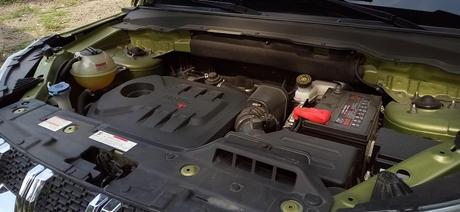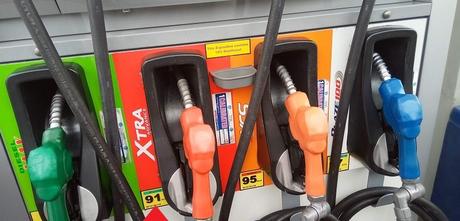
Engine pinging sound usually points to an engine-related fault. However, pinging can also be triggered by the use of cheap gasoline or, believe it or not, driving at high altitudes.
Reason for engine pinging sound
(1) Use of low-grade gas.
(2) Thin air is causing pinging.
(3)Faulty load sensor.
Car troubleshooting
If you been filling your tank with low octane gasoline, then a low-grade gas is causing the pinging.Low grade or "cheap" gas is generally considered to be gas with an octane rating of 88 or below. The bad thing about low-grade gas is that it burns too easily. Put another way, low-grade gas is too combustible. You see, the gas that burns too easily will, under certain conditions, self-ignite before the piston reaches the top of the combustion chamber... this is known as preignition. When preignition occurs, you'll hear a pinging sound.
Can I Switch From Premium to Regular Gas
Can you I premium gasoline in any car? Can I Switch from premium to regular gas?
Learn more: Can I Switch From Premium to Regular Gas
Generally, preignition only occurs under conditions such as when the engine is under stress and/or really hot. When driving up a hill, the engine is under stress. This stress will trigger preignition (and thus pinging).
What to do?
Use higher octane gasoline. High octane fuels have a rating of 93 or above and are usually called "Super" gasoline. Incidentally, the octane rating is displayed on the front of the gas pump.

However, if you did not fill your tank with low octane gasoline, but the pinging only occurs on high altitude roads, then thin air is causing pinging.
As indicated, the only time the engine makes a pinging sound is on high altitude roads. What is significant about high altitude roads is the fact that the air is thin. Now, when an engine is both under stress (e.g. driving up a hill) and it has only thin air for combustion, the fuel will tend to ignite in the combustion chambers before it is should. This condition is known as "preignition". When preignition occurs, a pinging sound results.
What to do?
Try using high octane gasoline the next time you anticipate driving on high altitude roads. High octane fuels burn slower and are therefore more resistant to preignition. If preignition is eliminated, pinging is eliminated as well. High octane fuels have a rating of 92 or above and are called "Super" gasoline. By the way, the octane rating is easy to determine... it's displayed on the front of any gas pump.
If the pinging occurs not only on high altitude roads, meaning even in low altitude road pinging sound occurs, then the load sensor could be faulty which causes the pinging. Fuel-injected engines have a gadget called a "load sensor". The purpose of this sensor is to measure the load/stress on the engine.
When the load is high, such as when driving up a hill, the load sensor (if working) will send a signal to the engine's control unit to indicate a "high load" condition. Based on this signal, the control unit makes a calculation and uses the result to adjust the engine's operation so as to avoid pinging.
Clearly then, if the load sensor isn't working, the engine will probably ping when driving up a hill. From the above, you may be thinking that the control unit could be faulty and not the load sensor. Although this is possible, it's rare. Further, if the control unit was faulty, the engine would probably not run at all.
What to do?
Take the car to a garage and have the mechanic check the load sensor. If it is indeed faulty, have it replaced. When talking to the mechanic, try to describe the nature of this problem just as we described it to you. Don't ignore this pinging sound. Pinging is actually an indication of something called preignition. When left uncorrected, pinging/preignition can ruin an engine. If you aren't currently using "Super" gas, try a tank. Super gas is formulated to resist pinging and thus can act as a temporary fix to this problem.
Want more videos? Subscribe to Cartech Home channel
